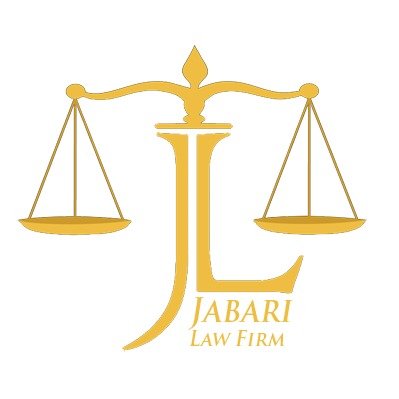Best Financial Services Regulation Lawyers in Hashemite Kingdom of Jordan
Share your needs with us, get contacted by law firms.
Free. Takes 2 min.
Or refine your search by selecting a city:
List of the best lawyers in Hashemite Kingdom of Jordan
About Financial Services Regulation Law in Hashemite Kingdom of Jordan
The Financial Services Regulation in the Hashemite Kingdom of Jordan is primarily governed by the legislature and various regulatory bodies aiming to ensure stability, transparency, and efficiency within the financial markets. The Jordan Securities Commission (JSC) is tasked with regulating the securities market, while the Central Bank of Jordan supervises banking operations. Key legislative frameworks include the Banking Law, the Securities Law, and Anti-Money Laundering regulations. These are designed to protect investors, maintain market order, and foster economic growth.
Why You May Need a Lawyer
Legal expertise in Financial Services Regulation may be required in a variety of situations, including:
- Compliance Issues: Ensuring that businesses adhere to all the financial regulations and laws.
- Licensing: Assisting with the process of obtaining licenses required to perform financial services.
- Dispute Resolution: Resolving conflicts between financial institutions and their clients.
- Investigation or Enforcement Actions: Handling regulatory investigations or enforcement actions initiated by the financial regulatory bodies.
- Corporate Finance Transactions: Advising on complex financial transactions, such as mergers and acquisitions.
Local Laws Overview
The key aspects of financial services laws in Jordan include:
- The Banking Law: Governs the operation and establishment of banks, including capital requirements and governance structures.
- The Securities Law: Overseeing the issuance, trading, and marketing of securities in the country.
- Anti-Money Laundering Law: Imposes obligations on institutions to prevent and report money laundering activities.
- Investment Promotion Law: Provides incentives for foreign and domestic investment in financial services.
- Deposit Insurance Corporation Law: Establishes protection for depositors, aiming to enhance confidence in the banking system.
Frequently Asked Questions
What is the role of the Jordan Securities Commission?
The JSC regulates and supervises the capital market in Jordan, ensuring market transparency, protecting investors, and developing an efficient securities industry.
Do I need a license to provide financial services in Jordan?
Yes, entities offering financial services must obtain the necessary licenses from the Jordan Securities Commission or the Central Bank of Jordan, depending on the nature of the services.
How are disputes in the financial services sector resolved?
Disputes can be resolved through negotiation, arbitration, or litigation. Regulatory bodies may also offer mediation services to facilitate resolution.
What does compliance with Anti-Money Laundering laws entail?
Compliance involves implementing procedures to detect, prevent, and report suspicious transactions, ensuring customer due diligence, and maintaining records as mandated by law.
What incentives are available for investing in the financial services sector in Jordan?
The Investment Promotion Law provides various incentives, including tax exemptions and reduced customs duties, to encourage investment in the financial services sector.
Who regulates the banking sector in Jordan?
The banking sector is regulated by the Central Bank of Jordan, which oversees the safety and soundness of banks and ensures compliance with relevant laws.
What are the capital requirements for banks in Jordan?
Capital requirements are set by the Central Bank of Jordan and align with international banking standards to ensure financial stability and soundness.
How can I file a complaint against a financial service provider?
Complaints can be filed with the respective regulatory body, such as the Central Bank of Jordan or the Jordan Securities Commission, which may investigate and address the issue.
Are there regulations governing online financial services?
Yes, several regulations address the provision of online financial services, including measures for cybersecurity and protection of consumer information.
Where can I find financial regulation documentation?
Regulatory documentation can be accessed through the official websites of the Central Bank of Jordan and the Jordan Securities Commission.
Additional Resources
Central Bank of Jordan: Provides oversight for banks and maintains financial policy. Jordan Securities Commission: Regulatory authority for securities markets and investor protection. Jordan Investment Commission: Offers support and resources for investors in Jordan. Association of Banks in Jordan: Represents and advocates for banking sector interests.
Next Steps
If you need legal assistance in financial services regulation, consider the following steps:
- Research: Gather information on your specific issue and identify the appropriate regulatory body or provisions involved.
- Consult a Lawyer: Seek legal advice from a lawyer specialized in financial services regulation law in Jordan for tailored guidance.
- Prepare Documentation: Collect any relevant documents or evidence that may support your case or issue.
- File a Complaint: If necessary, file a formal complaint with the appropriate regulatory body.
- Look for Resolution Mechanisms: Consider alternative dispute resolutions if recommended by your legal advisor.
Lawzana helps you find the best lawyers and law firms in Hashemite Kingdom of Jordan through a curated and pre-screened list of qualified legal professionals. Our platform offers rankings and detailed profiles of attorneys and law firms, allowing you to compare based on practice areas, including Financial Services Regulation, experience, and client feedback.
Each profile includes a description of the firm's areas of practice, client reviews, team members and partners, year of establishment, spoken languages, office locations, contact information, social media presence, and any published articles or resources. Most firms on our platform speak English and are experienced in both local and international legal matters.
Get a quote from top-rated law firms in Hashemite Kingdom of Jordan — quickly, securely, and without unnecessary hassle.
Disclaimer:
The information provided on this page is for general informational purposes only and does not constitute legal advice. While we strive to ensure the accuracy and relevance of the content, legal information may change over time, and interpretations of the law can vary. You should always consult with a qualified legal professional for advice specific to your situation.
We disclaim all liability for actions taken or not taken based on the content of this page. If you believe any information is incorrect or outdated, please contact us, and we will review and update it where appropriate.
Browse financial services regulation law firms by city in Hashemite Kingdom of Jordan
Refine your search by selecting a city.

















